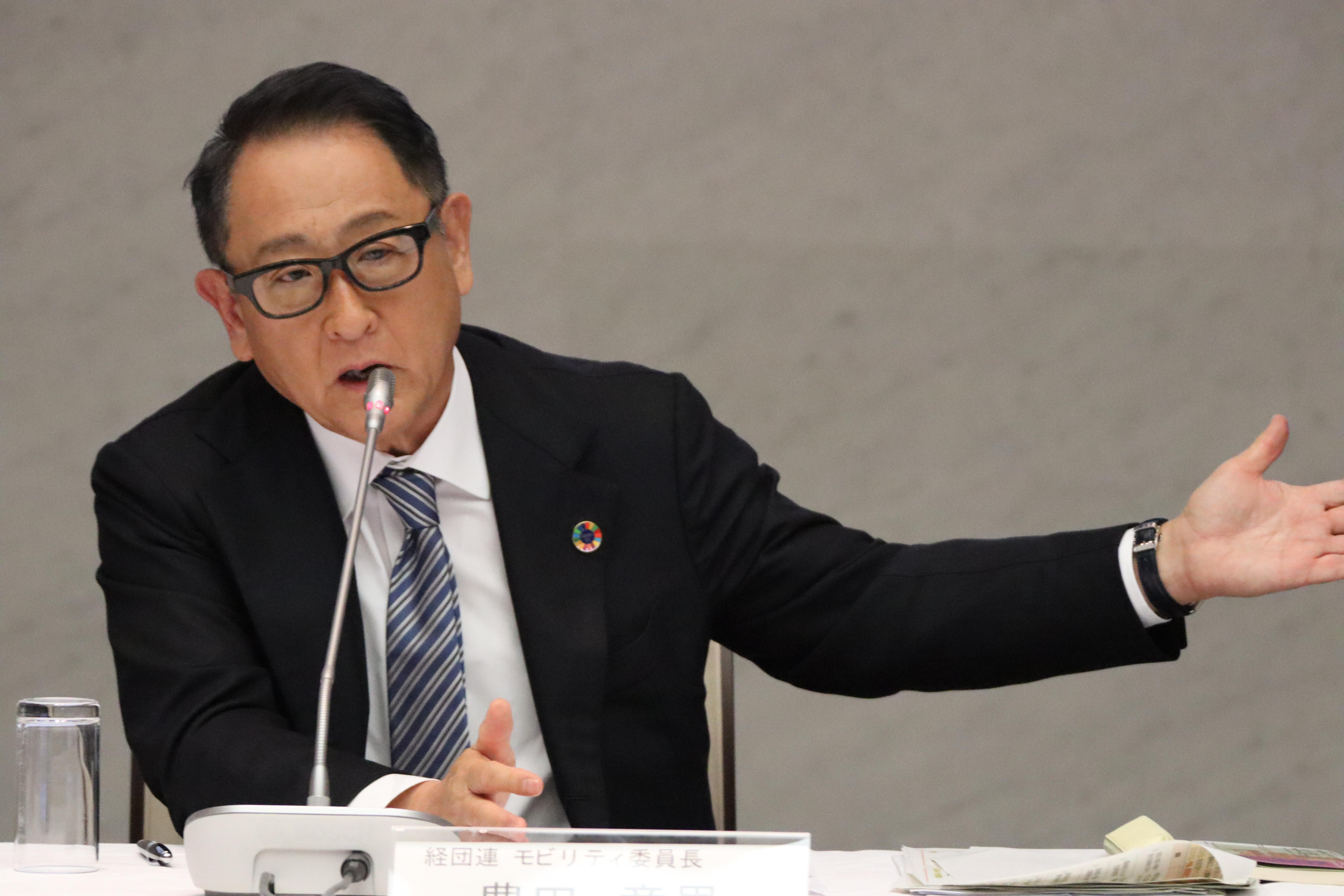
Keidanren's Committee on Mobility recently met for the third time. The commitment to creating a future for industry is expanding far beyond the automotive sector.
Seven challenges facing the auto industry
The Japan Automobile Manufacturers Association (JAMA) also participated in the meeting. Policy Committee Chairman Jun Nagata (Toyota Motor Corporation Operating Officer) outlined the seven challenges facing the country’s auto industry.
1.Attaining higher added value and efficiency in logistics, commercial vehicles, and transportation
2.Developing social infrastructure for widespread adoption of electric vehicles
3.Ensuring international competitiveness of domestic batteries and semiconductors
4.Stable procurement of key resources and establishment of robust supply chains
5.Trade policies that promote investment in Japan
6.Competitive clean energy
7.Establishing infrastructure for cross-industry data collaboration and parts traceability
Chairman Koji Arima (Denso Chairman) reflected on “the lively discussion” about these challenges, “with much input from outside the auto industry, even touching on industrial policy and energy.”
“There is certainly a growing appreciation of the challenges,” commented committee member Masanori Katayama (JAMA Vice Chairman, Isuzu Motors Chairman). Fellow member Yoshihiro Hidaka (JAMA Vice Chairman, Yamaha Motor President) agreed that “we have reached a consensus which puts mobility at the center, creating the momentum for other industries and ensuring a future for Japan.”
The remarks by all three also suggested that concrete solutions are already being discussed, with the automobile and motorcycle industries playing a central role.
Chairman Toyoda was then asked for his thoughts on the committee’s third meeting.
Chairman Toyoda: The future is built on trust and shared commitment
Chairman Toyoda

Looking at the auto industry, the economic ripple effect of vehicle production is 53 trillion yen. Auto parts exports create a trade surplus of 15 trillion yen, earning roughly the same amount as Japan, a country with no natural energy resources, spends purchasing its various energy reserves.
What’s more, the sector employs 5.5 million people. If we include energy and other industries, the total number of jobs related to mobility reaches 8.5 million. In all, Japan’s manufacturing industry has nearly 10 million people working together to build the future.
When the market was expanding, our mindset was to compete amongst each other and grow our respective companies. But as we heard in the comments from different industries at today’s committee meeting, I believe we’ve reached the consensus that there are limits to what individual companies can achieve, and we need to broaden our areas of cooperation to transcend industry lines and create the future together.
I believe the future is built on trust and shared commitment.
Today, I think the Committee on Mobility has a shared understanding that while advocacy is important, the key lies in how we work together to create the future.
Building that future will be very difficult without trust and shared commitment. I believe that most people who hold this view are part of a silent majority in vulnerable positions.
I think it is important for today's adults to consider who we are creating this future for. A good benchmark is whether our future selves would be grateful to us for what we do in the present.
To the leaders who have helped us reach a consensus today, what must we do and say to earn that “thank you” from our future selves?
The companies here today will be among the many people taking part in the Japan Mobility Show. I want this to serve as a starting point for creating our future. I hope you will join us in this endeavor through your firm encouragement and support.
Japan Mobility Show, a first step toward the future
Akio Toyoda also serves as chairman of JAMA, in which role he previously made the following comment:
“As the word ‘Japan’ in our association’s name implies, we have an important role in the Japanese economy and society. And I believe it’s important that we all move forward together in facing today’s difficult challenges.”
More than half of the committee’s corporate members are taking part in the Japan Mobility Show. Transcending industry divisions, the event is the first opportunity to share Japan’s mobility future with the world.
The recent meeting addressed challenges that cannot be solved by individual companies, bringing together the views of many industries. Keidanren’s Committee on Mobility has begun taking concrete action to make Japan more competitive.

